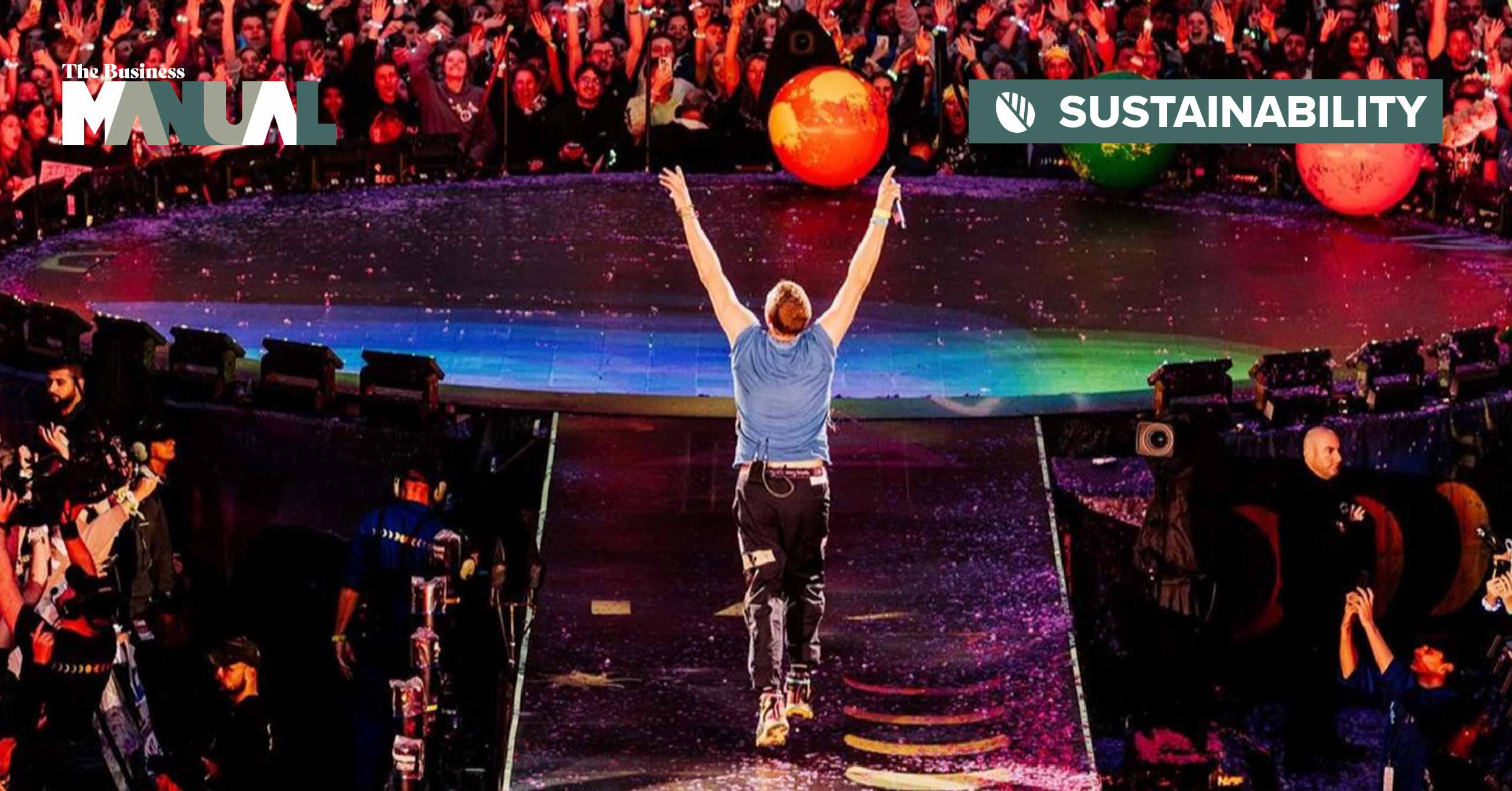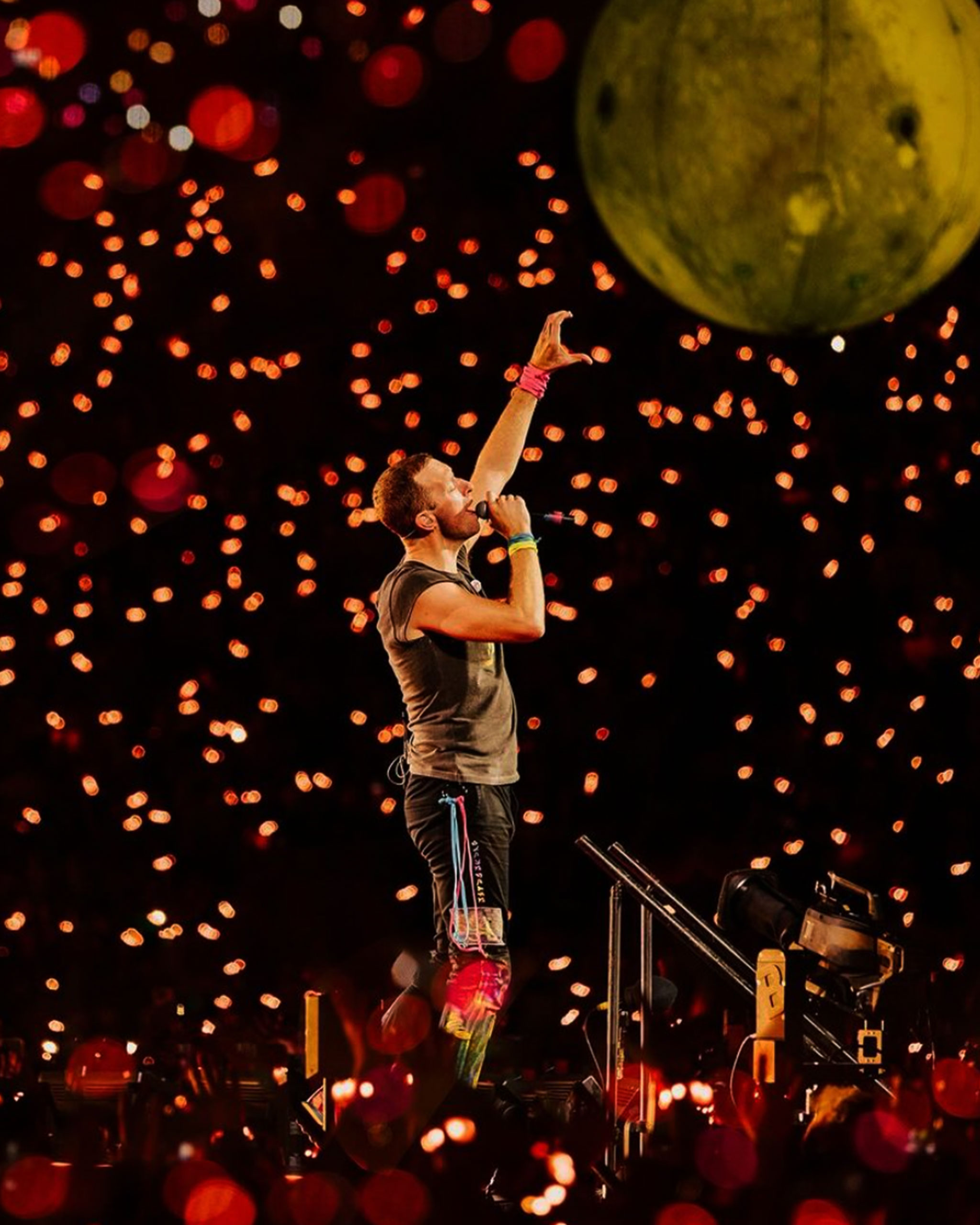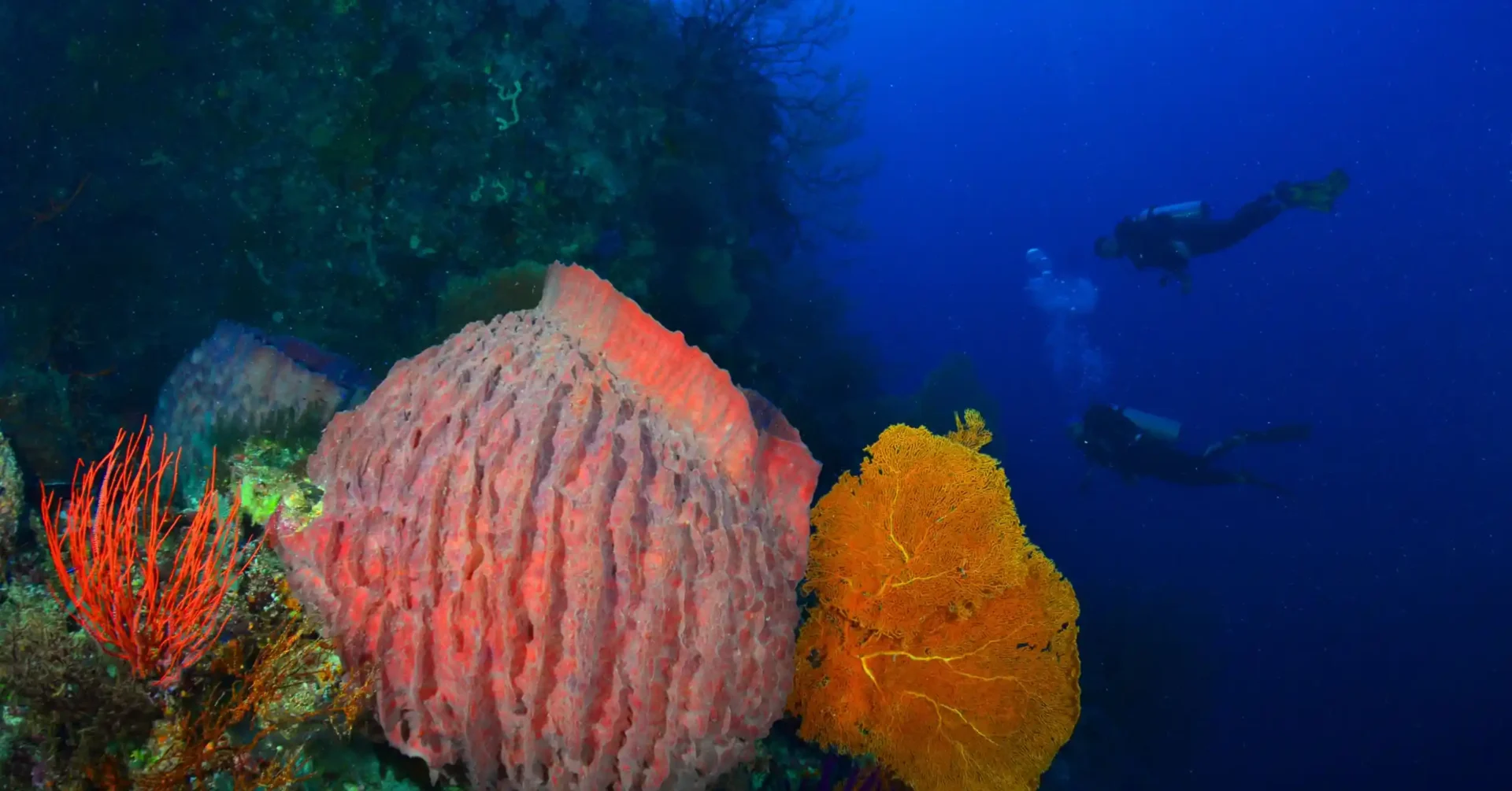How Famous Rock Band Coldplay Has Made Sustainability Mainstream

Putting their money where their mouth is, British rock band Coldplay released its own Massachusetts Institute of Technology (MIT)-verified sustainability report, showing their groundbreaking efforts in staging their concerts more responsibly and sustainably.
It all began in 2019 when UK-based ensemble Coldplay announced they would not stage another concert until they were able to do it more sustainably. In 2021, the band announced its Music of the Spheres World Tour where they committed to reduce carbon emissions by 50%. This year, in an unprecedented move, the band released its own sustainability report. It set a benchmark in the entertainment and event-staging industries, proving that it is possible to stage events profitably and sustainably at the same time.
Principles in Sustainability
Coldplay follows three guiding principles in its mission:
- Reduce – their consumption, recycle, and cut carbon dioxide (CO2) emissions by 50%
- Reinvent – by supporting new green technologies and developing low carbon touring methods
- Restore – Make the environment benefit from their tours by supporting various nature and technology-based projects, and giving back more to the environment than the carbon they produce.

Reduced Carbon Emissions
As a result, the band reports that, as of 2023, they have reduced their carbon emissions by 59% compared to their last tour (2016-2017). They have done this by partnering with DHL, whom the band describes on their website as “leaders in the field of sustainable transport and logistics,” and helps them minimize emissions through advanced biofuels in the air and the use of electric cars on land.
100% Renewable Energy
Their concerts are also 100% powered by renewable energy, by using recyclable batteries, solar panels, and even kinetic dance floors and power bikes that the audience needs to activate during the concert, to provide power on stage.
“So when the front man says we need you to jump up and down, I literally need you to jump up and down [because] if you don’t, then the lights go out,” lead vocalist Chris Martin explains in a BBC interview.
Recycling and Waste Reduction
In staging the show, the band has a sustainability rider who checks the concert venue in advance for the best environmental practices, while changing and adapting their concerts to the current location, using locally sourced materials and suppliers as much as possible.
The stage itself is made of low carbon and re-usable materials that can be recycled after the event.
Single-use plastic was discouraged at the venue. Seventy two percent of all their tour waste was diverted from the landfill and sent for reuse, recycling, and composting, while 9,625 meals (mostly organic and locally sourced), and 90 kilograms of toiletries were donated to various homeless shelters.
Even the fan wrist bands are made from plant-based materials. Their production has been reduced by 80% by recycling, sterilizing and recharging them, while the confetti used is also made from 100% biodegradable material.
Water Conservation
They reduce water pressure in their venues and use aerated taps and low-flushing toilets. Water refilling stations are provided and fans are encouraged to just bring their own refillable water bottles.
Good Causes
The band puts 10% of their earnings into a good causes fund that is split between environmental and socially conscious projects including ClientEarth, The Ocean Cleanup, One Tree Planted, Climeworks, Project Seagrass, Sustainable Food Trust, Cleaner Seas Group, Food Forest Project, Knowledge Pele, Conservation Collective, and others.
A Tree for Every Concert Goer
Aside from enjoying a world-class show, every attendee can take pleasure in the fact that a tree is planted for every ticket sold. According to their sustainability report, seven million trees have been planted that will be supported until maturity. The initiative has also restored 10,000 hectares of land, across 24 countries and 48 planting projects.
Setting the Benchmark for Sustainability Across Sectors
Various sectors from the entertainment, media, environmental and sustainability groups, as well as the general public, have applauded ColdPlay’s sustainability efforts and achievements. “I think they did a phenomenal job to bring forth genuine care and concern for humanity,” says Yavnika Khanna, Chief Marketing Officer of a social impact marketing company in a LinkedIn article about the band’s environmental and inclusivity efforts.
For Sustainability datahub KnowEsg, Coldplay’s initiatives have brought sustainability to the front and center of the entertainment industry. “Coldplay has set an important precedent for other artists, musicians, and entertainment organizations to follow suit. This move places sustainability firmly on the radar of the entertainment sector, fostering greater awareness and encouraging collective action”, says Chief Editor Richard Turner.
In another LinkedIn article, Mahima Chaudharry, a change management leader and speaker from Deloitte Canada, sums it up well in her title: “Coldplay & Sustainability. Change does not take time, it takes dedication, systemic action, and accountability.”
In her article, she notes how the band has proven its detractors wrong over time, showing its seriousness in doing its part for a better world. “A ton of people laughed, some called it a marketing gimmick focused on getting traffic through the door after the pandemic, others called it monumental greenwashing. Here we are though in 2024 and Coldplay is showing up consistently with receipts,” she writes.
Soha Kapadia, Chief Innovation Officer at Solnce Energy India, chimes in, “As someone who teaches about sustainability, Coldplay’s journey is like a goldmine of inspiration. They’re not just doing good things; they’re also great at telling the story and getting everyone involved.”
In an interview with CNN, Martin explained their group’s motivation–to prove that profitability and sustainability can simply go hand in hand in business. “We’re trying to prove that being more eco-friendly can be profitable so that these businesses or people that always say we can’t afford to go clean and go green, that we can prove that actually you can.”
By going beyond their role as entertainers, the rock band has made a bold statement and created a compelling example of how any business can be done more sustainably.
They also successfully used their celebrity status for good by getting their message across to a wider audience compared to what environmental groups could do on their own—and that is what truly makes them rock stars.



